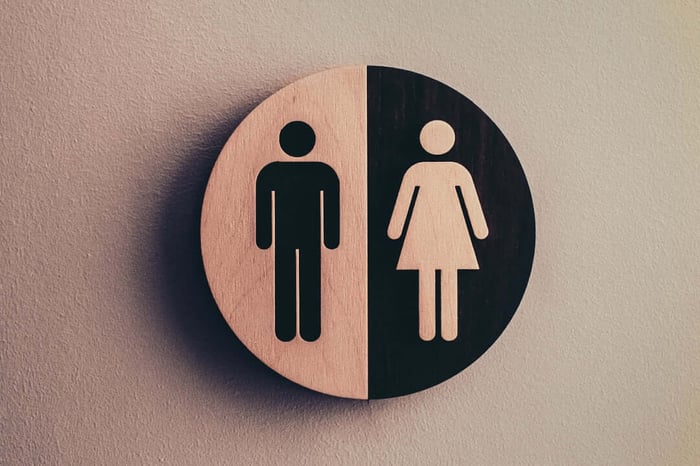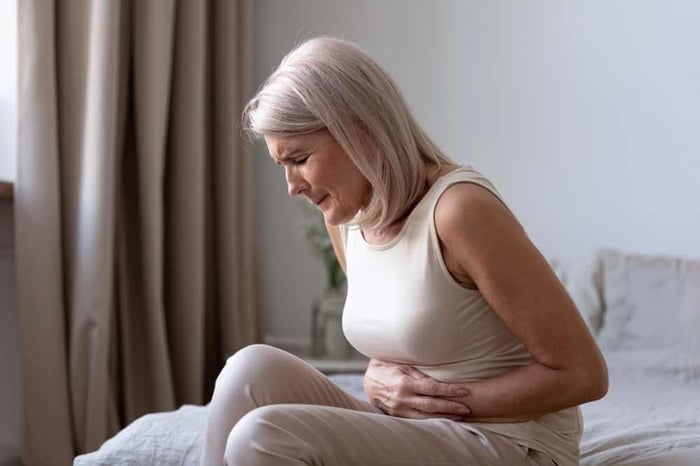Probiotics are known to be good for your digestive system. They keep the system in harmony from digestive tract to intestines, and when they’re out of balance, you’ll know about it!
Being such an important part of digestion means that naturally, they’ll have an effect on your poop. Will it increase? Decrease? Change drastically?
While there’s no one-size-fits-all answer here, the facts are clear. Probiotics are not laxatives and are not prescribed for helping you to poop… but they can help to speed things up in some cases.
Here’s what we know about the subject.
What Are Probiotics?
WHO describes probiotics as “live microorganisms which when consumed in adequate amounts as part of food confer a health benefit on the host.”
In a nutshell, probiotics are good bacteria in the gut. Did you know you have a community of millions of different strains of bacteria living in your gut? It may sound creepy, but they play a huge role in your health.
But when you hear the word “probiotics,” chances are you think about probiotic supplements rather than natural gut bacteria or microorganisms in food.
Natural probiotics are found in fermented foods. But the truth is, many of us struggle to keep a balanced, healthy gut just by eating probiotic-rich foods like yogurt, kimchi, and kefir.
This is why we consume probiotic supplements. A probiotic product can improve your health in multiple ways, including boosting the immune system.
How Do Probiotics Work?
You may see huge numbers on probiotic supplements, in the millions. What this means is that every tablet you take is adding millions of live, healthy bacteria to your digestive system.
As you can imagine, this helps to balance the good and bad bacteria quite effectively. Not only that, but the increased number of good bacteria can help to drive out bad bacteria.
But in order to understand probiotic bacteria’s relationship to poop, we need to understand its role in digestion.
The Best Synbiotic Combo: Click Here Now to Check It Out

Probiotics and Digestive Health
When your gut microbiome (fancy term for tummy environment) becomes unbalanced, the bad bacteria outweigh the good. You may experience digestive issues as a result of this.
This is usually because good bacteria are responsible for digesting fiber… and when the number of good bacteria decreases, your body’s ability to digest fiber gets a little wonky.
A change in the fiber content of your gut can lead to unpleasant symptoms like:
- Excessive gassiness
- Bloating
- Tummy cramps
- Constipation (1)
Constipation may include infrequent stools (fewer than 3 times a week), pain or straining when trying to pass a stool, and incomplete stools, which feel as though you haven’t got everything out.
Unless you’re consciously eating foods to boost your good bacteria (which most of us don’t find easy to do), adding a probiotic supplement to your daily intake can help restore harmony. And yes, restoring harmony to a constipated gut means… poop.
How Probiotics Make You Poop
One of the effects of probiotic bacteria is relief from constipation (2) (3). Studies show that ingesting probiotic strains can improve:
- Gut transit time: The amount of time it takes from swallow to poop. Studies suggest that probiotics can speed it up by 12 hours!
- Stool consistency: The softness of your poop. Probiotics have been shown to soften your stool and make it easier to pass.
- Number of weekly bowel movements: How many times you go in a week. This number is increased on average by 1.3x with probiotic supplementation.
This combination means that passing waste through your body becomes easier and quicker. But ultimately, it comes down to what exactly has caused the change in your gut microbiome.
While constipation can be an acute condition as a result of an unhealthy lifestyle or not drinking enough water, chronic constipation (for longer than 6 months) is usually as a result of IBS, IBD, or medication use.
Brand New: The Best (Doctor-Recommended) Probiotic on the Market

Irritable Bowel Syndrome (IBS)
IBS is one of the most common reasons for constipation, and it can happen on a regular basis. Consuming a probiotic supplement can ease symptoms significantly (4) by helping to:
- Increase the frequency of bowel movements
- Soften the stool and make it easier to pass
- Reduce pain associated with irritable bowel syndrome
Medication
Did you know that antibiotics can kill off some of the good bacteria in your gut? This means the bad guys are left to run rampant, and your gut health can quickly turn into a nightmare.
If you’re experiencing constipation from medication, a probiotic supplement can help to boost the number of good bacteria in your gut.
This is the first step to restoring a healthy digestive system. You should note, however, that you should give it a few days after taking antibiotics to allow your system to return to normal by itself before supplementing with probiotics.
What If Probiotics Make Me Poop Less?
This can happen, and it’s generally nothing to be concerned about! If you don’t suffer from constipation, then chances are you won’t notice much of a change in your bowel movements.
You may experience some digestive discomfort in the first few days of using a probiotic supplement. But your gut should get back to normal again fairly soon as your body becomes used to the new gut environment.
If you happen to suffer from chronic diarrhea, probiotics can actually be used to help you poop less. The main function of probiotics is to balance out the bacteria in the gut. So your body will do what it needs to do as it comes back into harmony!
What If Probiotics Make Me Constipated?
If you suddenly become constipated after starting to take probiotics, it could be a sign that you aren’t ingesting enough fiber or you aren’t drinking enough water.
Take a prebiotic supplement along with your probiotics. Prebiotics are food for probiotics, so you’ll be improving the health of your existing gut bacteria. If it doesn’t improve in a few days, it may be a good idea to check in with your doctor just to be safe!
To Poop or Not to Poop: What’s the Verdict?
Do probiotics make you poop? Yes, if you need to. If you don’t need to, though, then they’re not going to make you run to the bathroom unnecessarily.
If you’re constipated, probiotics will help. If you’re not, you’ll continue with your regular bowel routine like normal, with the possibility of a little more gas and bloating than usual in the first few days.
Worried about taking probiotics? It’s wise to seek medical advice from a doctor who knows your history before diving in. But once you start seeing the difference in your gut, you’ll wonder how you went without it!





